Countries with free education is an intriguing issue for students at home and abroad. Education is often seen as the key to unlocking opportunities, but for many students around the world, the high cost of tuition can be a significant barrier. Fortunately, some countries have made it their mission to provide education free of charge, not only to their citizens but, in some cases, to international students as well. These nations recognize the value of an educated population and the long-term benefits of investing in human capital.
In this blog, we’ll explore the Top 10 Countries with Free Education, delve into the reasons why some countries offer free education to international students, and outline the admission requirements for students interested in pursuing their studies in these tuition-free destinations. Whether you’re a prospective student or simply curious about the global education landscape, this guide will provide valuable insights into how free education systems work and how you can take advantage of them.
Top 10 Countries with Free Education
1. Germany
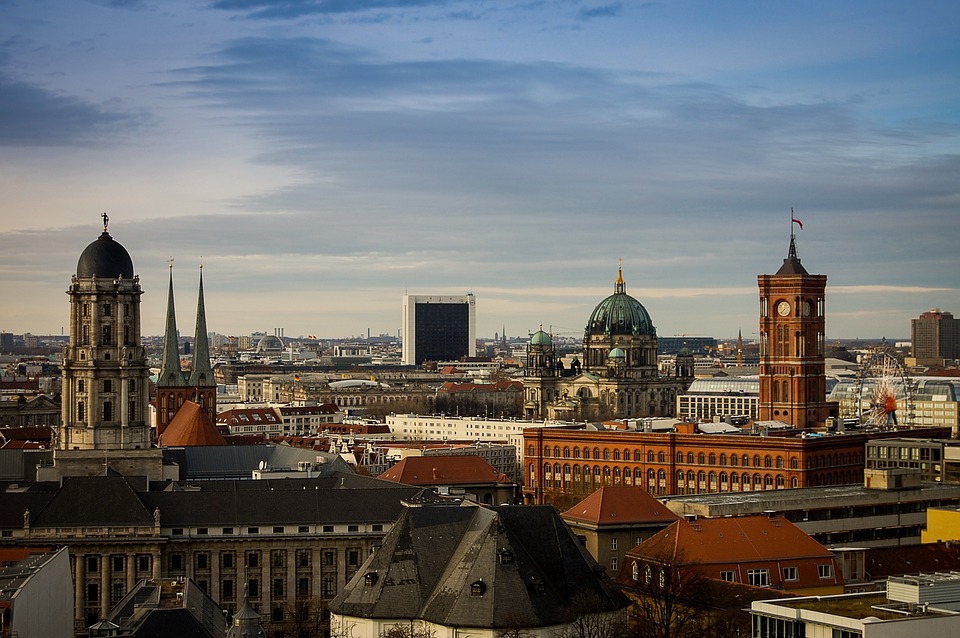
- Capitaland Largest City: Berlin
- EU/Non-EU: Free
- Average Cost of Living: €1,040 – €1,277/month
- World Class Universities: Heidelberg University, Leipzig University, University of Rostock
Most of the German universities are public institutions, and students traditionally study without fee payment. The general requirement for attending university is the Abitur. According to an OECD report in 2014, Germany is the world’s third leading destination for international study. With a world-class curriculum, Germany has become one of the most popular free education countries. With the option to work full-time for 120 days or part-time for 240 half days during their studies, students can support themselves while pursuing their passions. After graduation, they can stay in the country for up to 18 months to find a suitable job. Furthermore, the short-term student accommodation in Germany eases your journey in this country with free education, making it one of the best free education countries.
2. France

- Capitaland Largest City: Paris
- EU/EAA, Andorra, and Switzerland: Starting at €170/year
- Non-EU: €2,770 (Bachelor); €3,770 (Master)
- Average Cost of Living: €1,039 – €1,249/month
- World Class Universities: Sciences Po Paris, HEC Paris, Polytechnique
France is among the best countries with free education for international students. You can work for up to 964 hours per year while studying and stay in the country for up to one year after graduation to explore job opportunities. With a comprehensive guide to studying in France, you will easily navigate your way to one of the brilliant countries with free education.
3. Greece
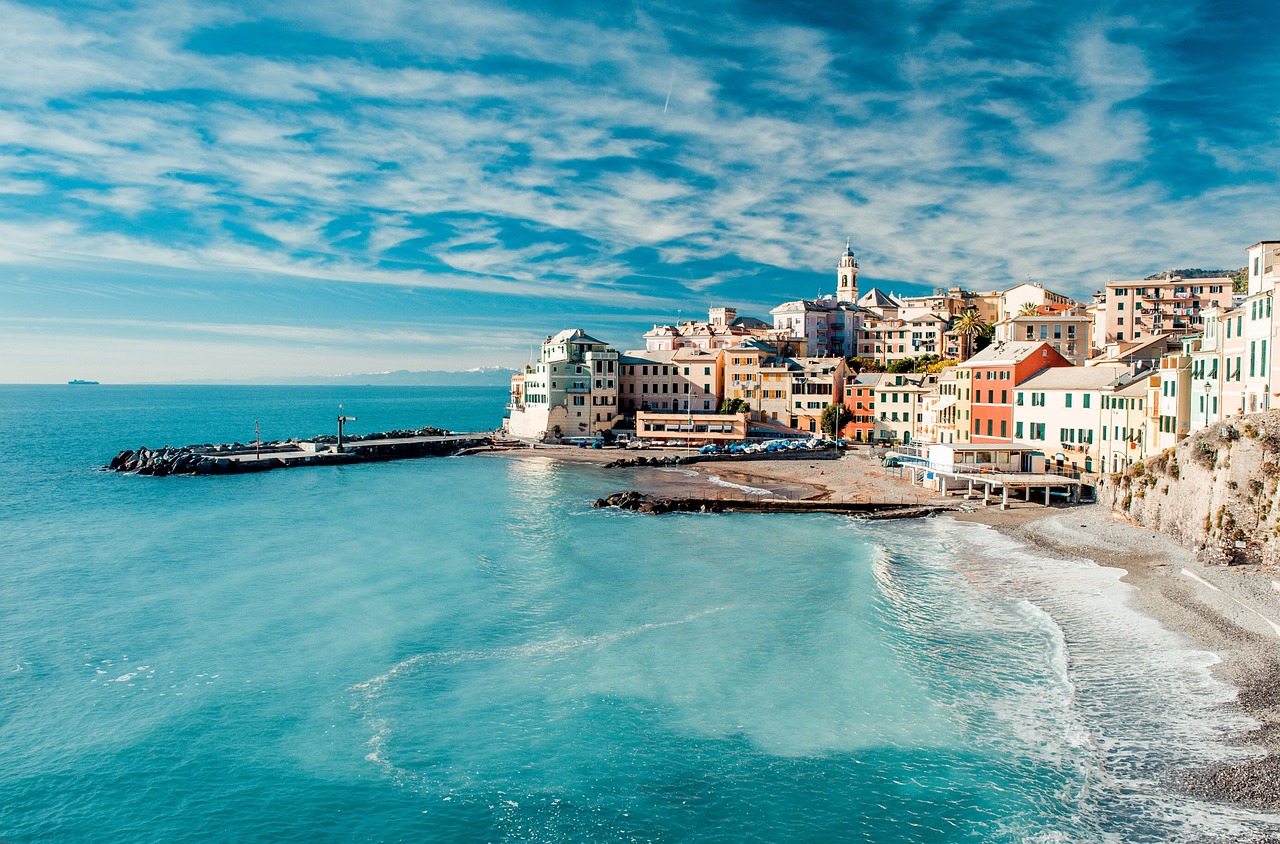
- Capitaland Largest City: Athens
- EU/EAA: Free, except for some master programs.
- Non-EU: Starting from €1,500/year
- Average Cost of Living: €761 – €895/month
- World Class Universities: University of Constantinople, Hellenic Open University
Greeks have a long tradition of valuing and investing in paideia (education), which was upheld as one of the highest societal values in the Greek and Hellenistic world.
Greece is home to a number of prestigious universities, making it one of the free education countries. Along with a standard of living at affordable prices, gathering rich cultural experiences is another reason to study in this country with free education. Students can also work for 20 hours per week during the semester. However, during vacations, students can work up to 40 hours per week.
4. Italy

- Capitaland Largest City: Rome
- EU: Starting from €900/year
- Non-EU: Can expect higher tuition
- Average Cost of Living: €894–€1,103/month
- World Class Universities: Scuola Normale Superiore di Pisa, Bologna University
Tertiary education is divided between public universities, private universities, and the prestigious and selective superior graduate schools, such as the Scuola Normale Superiore di Pisa. 33 Italian universities were ranked among the world’s top 500 in 2019. Bologna University, founded in 1088, is the oldest university still in operation, and one of the leading academic institutions in Europe. Bocconi University, the Università Cattolica del Sacro Cuore, LUISS, the Polytechnic University of Turin, the Polytechnic University of Milan, the Sapienza University of Rome, and the University of Milan are also ranked among the best.
5. Austria

- Capitaland Largest City: Vienna
- EU/EEA/Switzerland and developing countries: Free
- Non-EU: €762/semester
- Average Cost of Living: €1,048 – €1,304/month
- World Class Universities: University of Vienna
Education in Austria is entrusted partly to the Austrian federal states and partly to the national government. The Austrian university system had been open to any student who passed the Matura examination until recently. OeAD Scholarships – offers scholarships for international students for all degree levels.This European gem boasts not only a high quality of life and rich culture but also is one of the best free education countries for EU students and affordable for others. Austria is undoubtedly considered one of the top free education countries where international students can work up to 20 hours per week without a permit. After graduation, they can even apply for a one-year visa to search for employment. Additionally, this education free country has a variety of scenic views to visit as well.
6. Denmark
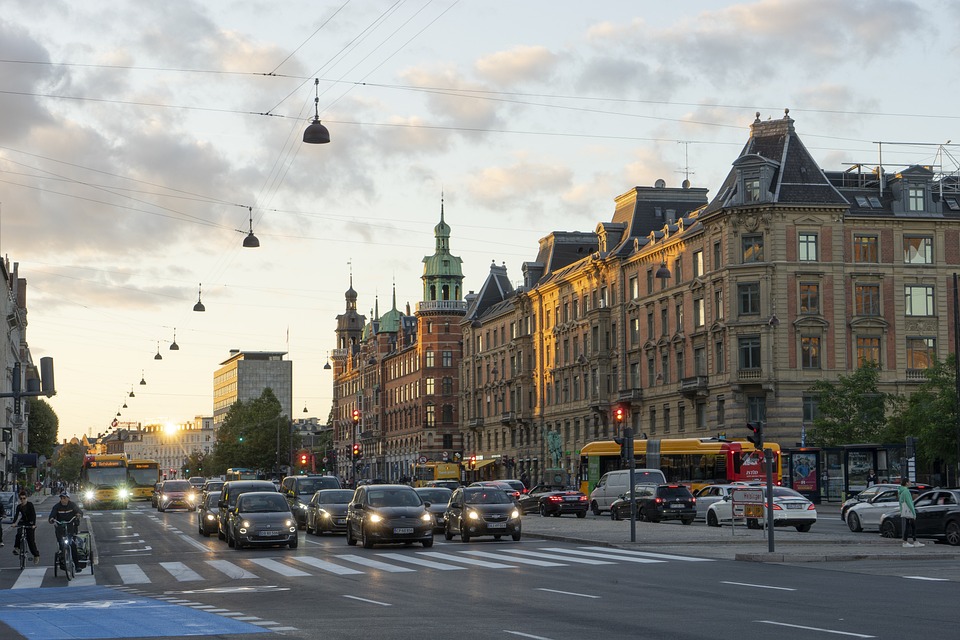
- Capitaland Largest City: Copenhagen
- EU/EAA and Switzerland: Free
- Other: Starting from €6,000
- Average Cost of Living: €1,215 – €1,484/month
- World Class Universities: University of Copenhagen
All educational programmes in Denmark are regulated by the Ministry of Education and administered by local municipalities. All university and college (tertiary) education in Denmark is free of charges, there are no tuition fees to enrol in courses. Students aged 18 or above may apply for state educational support grants, known as Statens Uddannelsesstøtte (SU), which provides fixed financial support, disbursed monthly. Danish universities offer international students a range of opportunities for obtaining an internationally recognised qualification in Denmark. Many programmes may be taught in the English language, the academic lingua franca, in bachelor’s degrees, master’s degrees, doctorates and student exchange programmes.
7. Finland
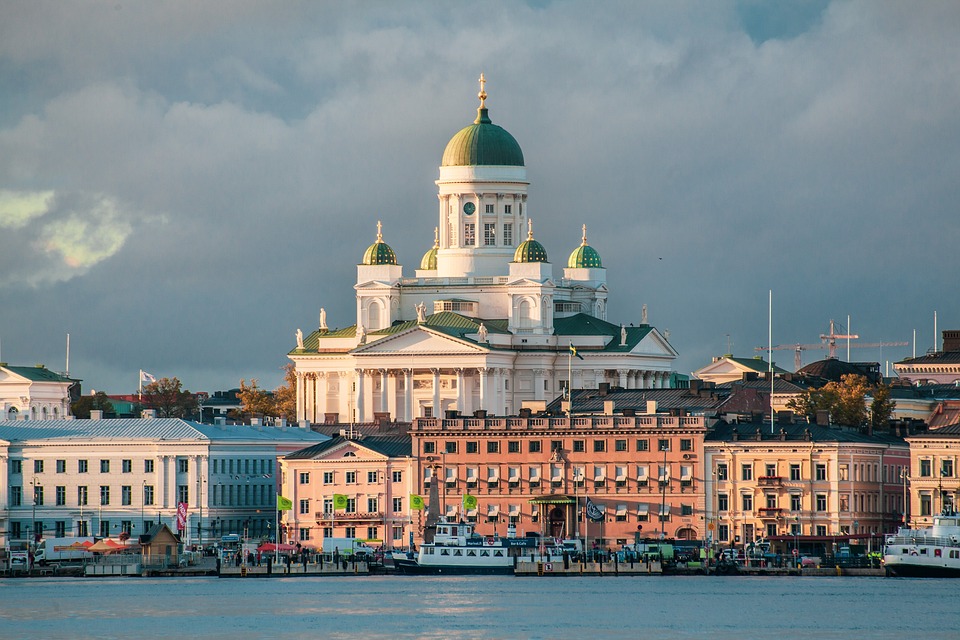
- Capitaland Largest City: Helsinki
- Finnish or Swedish-taught degrees: Free
- Non-EU/EEA: Starting at €4,000 for English-taught degrees
- Average Cost of Living: €978 – €1,296/month
- World Class Universities: Aalto University, University of Turku, Åbo Akademi University
In tertiary education, two mostly separate and non-interoperating sectors are found: the profession-oriented polytechnics and the research-oriented universities. Education is free and living expenses are to a large extent financed by the government through student benefits. There are 15 universities and 24 Universities of Applied Sciences (UAS) in the country.
Finland Government Scholarship – available for international students at Master’s and PhD levelsFinland is one of the best countries offering free education for international students. International students can also work up to 30 hours per week during their studies and stay in the country for up to two years after graduation. This is also one of the best free education countries that focuses on critical thinking and problem-solving.
8. Iceland

- Capitaland Largest City: Reykjavík
- EU/EEA and Non-EU/EEA: Free
- Average Cost of Living: €1,369 – €1,976/month
- World Class Universities: University of Iceland
The University of Iceland was the first higher education institution in the country, and was established on 17 June 1911, uniting three former Icelandic schools: Prestaskólinn, Læknaskólinn and Lagaskólinn, which taught theology, medicine and law, respectively.
Iceland is one of the most favoured free education countries, owing to its safe environment, inclusive community, and multicultural atmosphere. Plus, an exciting student life and a stay-back period of 6 months are other crucial benefits of studying in this option for countries with free education. The students can work up to 15 hours/week during their academic years, making Iceland one of the top countries with free education.
9. Norway
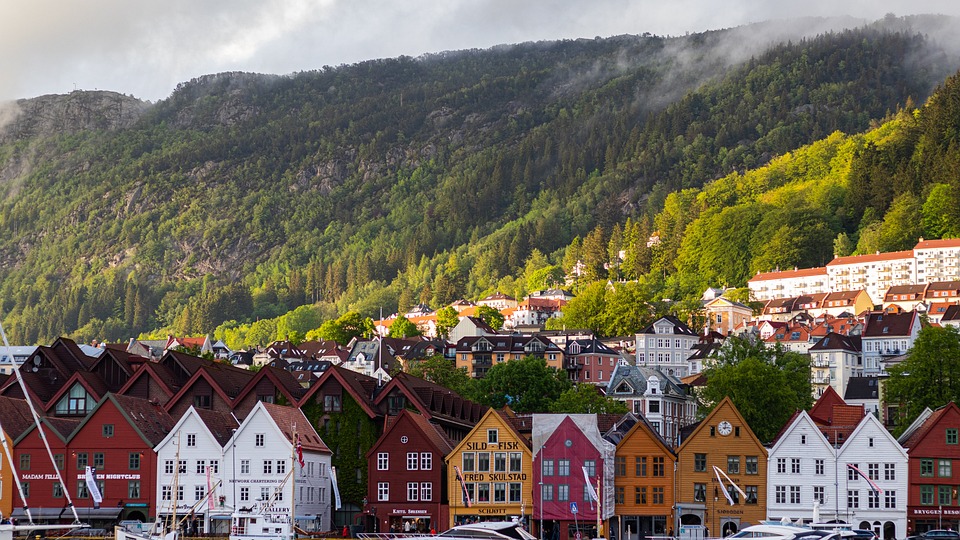
- Capitaland Largest City: Oslo
- EU/EEA and Switzerland: Free
- Non-EU/EEA: $13,000
- Average cost of living: €1,211 – €1,578/month
- World Class Universities: University of Oslo
Higher education in Norway is offered by a range of ten universities, nine specialised universities (focused on a specific program area), 24 university colleges as well as a range of private university colleges. Numerous programs are taught in English, barring the language gap for international students. Moreover, the job seeker visa is valid for 12 months to seek employment in this country with free education. With all these benefits, Norway is certainly one of the best free education countries to consider.
10. Poland

- Capitaland Largest City: Warsaw
- Polish, EU/EEA & Switzerland (Polish taught-degree): Free
- Non-EU: Starting from €2,000/year
- Average cost of living: €660 – €887/month
- World Class Universities: Jagiellonian University
The Jagiellonian University founded in 1364 by Casimir III in Kraków was the first institution of higher learning established in Poland, and is one of the oldest universities still in continuous operation. Poland is amongst the few countries with free education that also offers an affordable standard of living compared to other nations. With a student-friendly atmosphere and enriched culture, this country with free education allows international students to stay up to 12 months after completing their studies with their job seeker visa.
Top 10 Countries with Low Tuition Fees
Top 1. Luxembourg
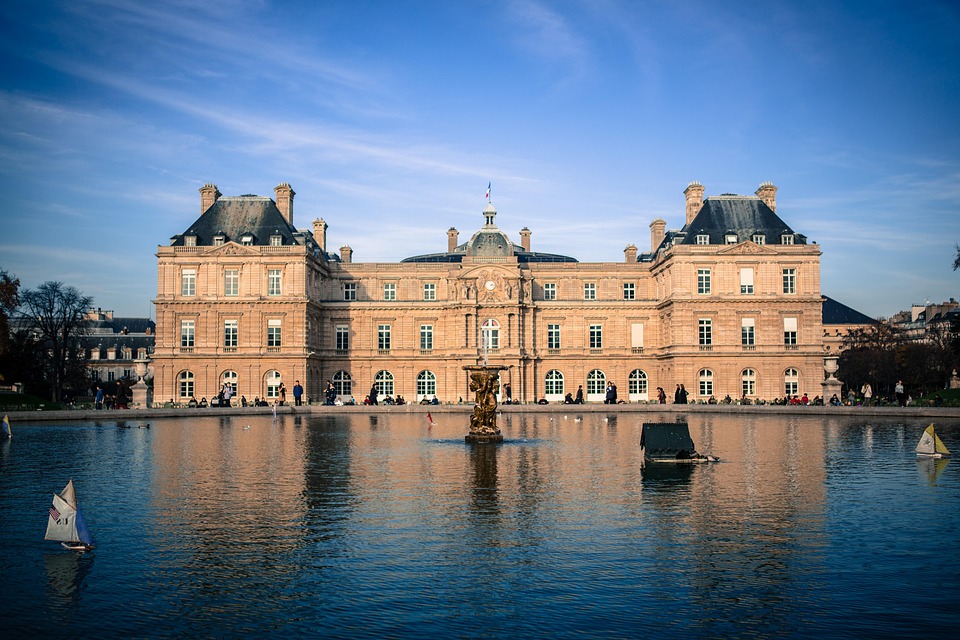
- Fees for EU, EEA & Swiss Citizens: Free (for Luxembourgish-taught Degrees) & €1,200/year (for English-taught Degrees)
- Average Cost of Living: €1,414–€2,036/month
- Best Universities: University of Luxembourg, European Business University, United Business Institutes
- Visa Requirements: Student visa for non-EU; proof of admission and financial means (~€13,000/year)
- Scholarship Opportunities: Luxembourg Ministry of Higher Education Scholarships – available for international students in selected fields.
Luxembourg is a developed country with an advanced economy and one of the world’s highest PPP-adjusted GDPs per capita, per the IMF and World Bank. It also ranks highly in terms of life expectancy, human development, and human rights. Luxembourg is one of the richest nations across the globe, yet it is ranked as one of the best countries with free education. With a high standard of living, a strong economy, and many opportunities in various sectors (such as finance, law, technology, and innovation), non-EU/EEA/Swiss citizens can stay in this education free country for 12 months to seek employment.
Top 2. Belgium
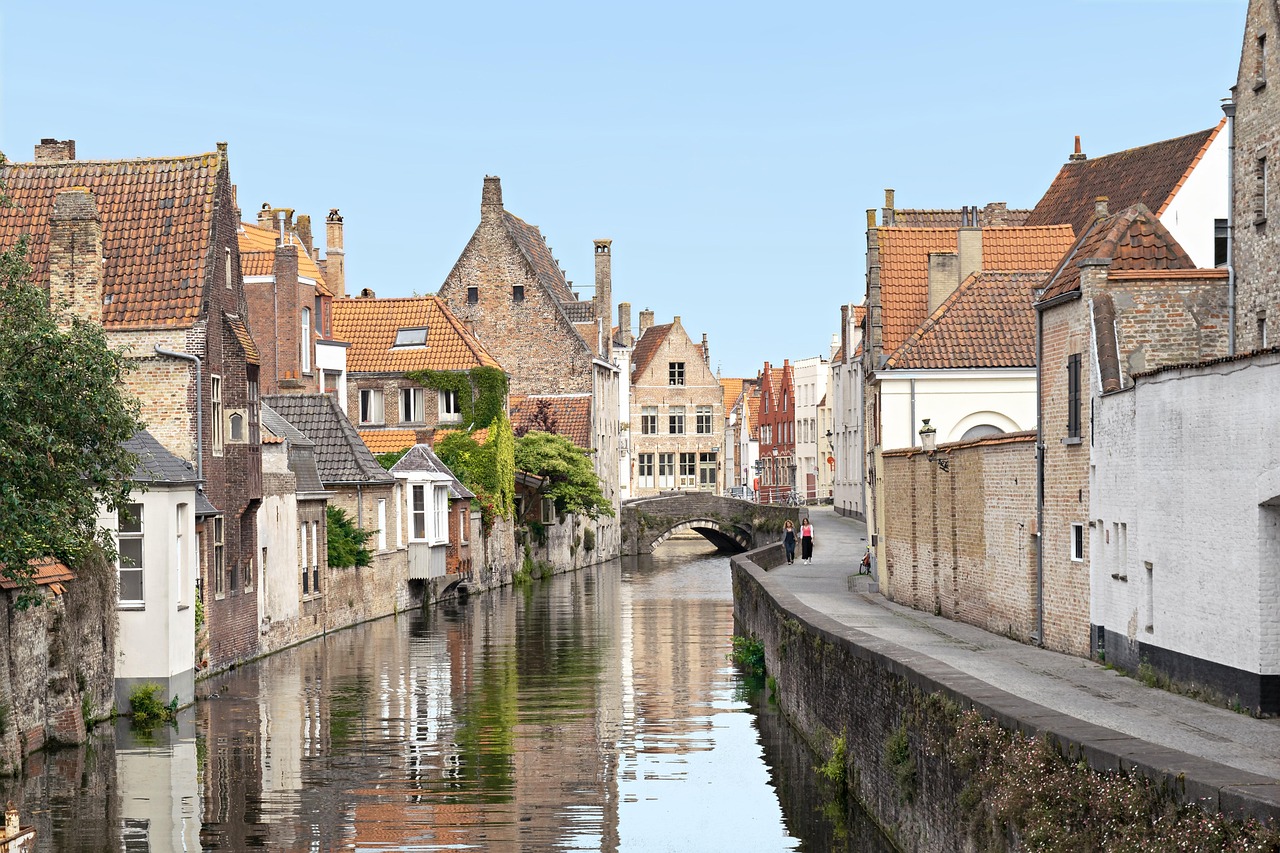
- Fees for Wallonia-Brussels Federation or EU Citizens: €835/year
- Fees for Non-EU Citizens: €2,505/year
- Average Cost of Living: €950 – €1,350/month
- Best Universities: Erasmus Brussels University of Applied Sciences and Arts, Thomas More University of Applied Sciences, Hogeschool Gent (HOGENT)
- Visa Requirements: Student visa for non-EU; university acceptance and proof of financial means (~€10,200/year).
- Scholarship Opportunities: VLIR-UOS Scholarships – provides funding for students from developing countries for Master’s programs.
Belgium is a developed country with an advanced high-income economy. Belgium, known for chocolates and free education, is also one of the countries with free education. Students studying in Belgium can work up to 20 hours a week during their academic years. If you are looking for a job in this country with free education, you can also apply for a residence permit for one-year post-graduation.
Top 3. Portugal

- Fees For EU/EEA citizens: Starting from €550/year
- Average Cost of Living: €752 – €1,026/month
- Best Universities: Lusophone University of Humanities and Technologies, University of Porto, University of Minho
- Visa Requirements: Student visa for non-EU; admission letter and proof of funds (~€7,000/year)
- Scholarship Opportunities: Erasmus+ Scholarships – available for international students as part of exchange programs.
Portugal is a developed country with an advanced economy relying chiefly upon services, industry, and tourism. Portugal, a member of the United Nations, the European Union, the Schengen Area, and the Council of Europe, was one of the founding members of NATO, the eurozone, the OECD, and the Community of Portuguese Language Countries. In addition to having an amazing football team and delicious varieties of cuisines, Portugal is also known all over the world as one of the best countries with free education for its affordable educational opportunities. In fact, aspiring students considering Portugal as their educational destination can live pretty comfortably with low costs of living and expenditures.
Top 4. Estonia

- Fees for EU/EEA/Swiss Citizens: Free (for Estonian-taught degrees)
- Fees for EU/EEA Citizens: Starts at €1,660 (for English-taught degrees)
- Average Cost of Living: €500 – €750/month
- Best Universities: University of Tartu, Tallinn University, Estonian Business School (EBS)
- Visa Requirements: Student visa for non-EU; university acceptance and proof of financial means (~€6,000/year).
- Scholarship Opportunities: Estonian Government Scholarships – for Master’s and PhD programs for international students.
With a budget-friendly tuition fee and no restrictions on working hours for international students, Estonia is amongst the best countries with free education, offering the perfect opportunities to accelerate your academic career. Non-EU students can even apply for a post-study work visa and stay up to 9 months to find their dream job in this countries with free education option.
Top 5. Netherlands

- Fees for EU/EAA, Switzerland or Surinam citizens: €2,314
- Fees for Non-EU/EAA: Starting from €6,000
- Average Cost of Living: €1,165 – €1,646/month
- Best Universities: HZ University of Applied Sciences (HZ), Nijmegen School of Management (NSM), HAS University of Applied Sciences
- Visa Requirements: Student visa for non-EU; admission and proof of funds (~€11,000/year)
- Scholarship Opportunities: Holland Scholarship – offers funding for international students for Bachelor’s and Master’s programs.
When looking for a free education country in the world, the Netherlands is definitely one to consider. Known for its interactive and student-centric style of teaching, the Netherlands has some of the best universities that offer a variety of degree courses and programs at affordable prices. Another interesting thing to note is that students can spend one year in the country after graduation to look for a job.
Top 6. Spain

- Fees for EU/EAA: Starting from €1,200/year
- Fees for Non-EU/EAA: Higher tuition rates apply
- Average Cost of Living: €805–€1,098/month
- Best Universities: Universitat de Barcelona, Pompeu Fabra University, University of Valencia
- Visa Requirements: Student visa for non-EU; admission and financial proof (~€7,000/year).
- Scholarship Opportunities: Spanish Government Scholarships – available for international students pursuing higher education in Spain.
Spain is ranked among the best free education countries, with 208,366 international students enrolled in its higher education institutions—a 36% rise over the previous five years. Compared to many English-speaking nations, tuition costs and living expenditures are comparatively less, averaging between €805 and €1,098 a month.
Top 7. Republic of Cyprus

- Fees for Cyprus & EU Citizens: Free
- Fees for Non-EU/EEA Citizens: €7,000/year
- Average Cost of Living: €700 – €1,000/month
- Best Universities: European University of Lefke, Eastern Mediterranean University (EMU), Near East University (NEU)
- Visa Requirements: Student visa for non-EU; requires university acceptance and proof of funds (~€7,000/year).
- Scholarship Opportunities: Cyprus State Scholarship Foundation – offers scholarships for undergraduate and postgraduate students.
Cyprus is a major tourist destination with an advanced high-income economy. This stunning island of Cyprus, which is known for its mythology and natural beauty, is one of the countries with free education for EU citizens. Bearing the subtropical climate, Cyprus also boasts high-quality education and the opportunity to work up to 20 hours per week during your studies. After graduation, you can stay in Cyprus for 60 days to search for employment or further make the best of affordable courses in this country with free education.
Top 8. Bulgaria
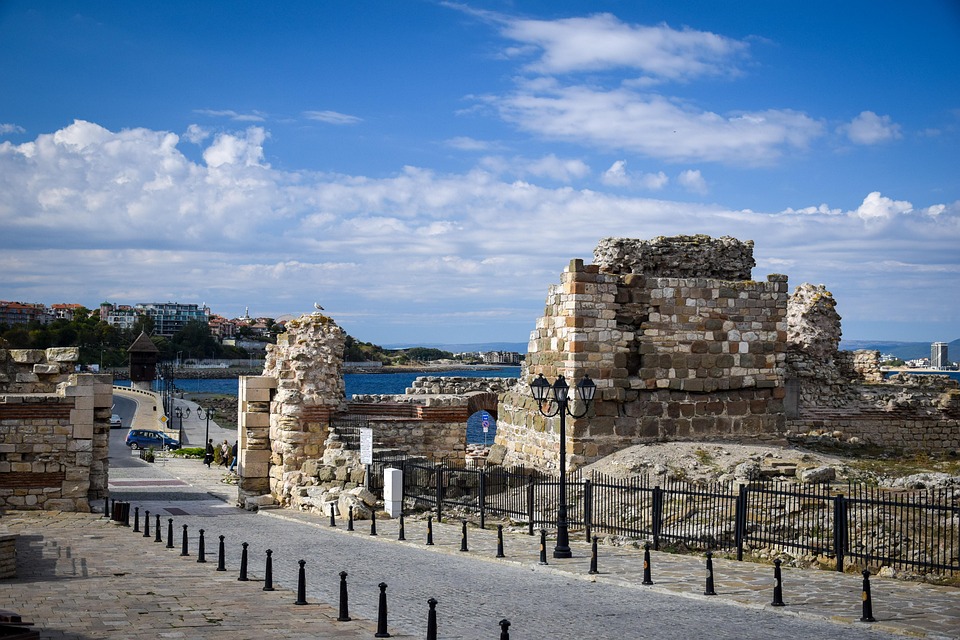
- Fees for EU Citizens: €300 – €1,700/year
- Fees for Non-EU Citizens: €1,750 – €3,850/year
- Average Cost of Living: €550 – €700/month
- Best Universities: Trakia University, Technical University of Gabrovo, Nikola Vaptsarov Naval Academy
- Visa Requirements: Student visa for non-EU; requires university admission and proof of financial means (~€4,000/year)
- Scholarship Opportunities: Bulgarian Government Scholarships – offers limited scholarships for non-EU students, especially for language and cultural studies.
Bulgaria has a high-income economy with a market economy that is part of the European Single Market and is largely based on services, followed by manufacturing and mining—and agriculture. Bulgaria, one of the free education countries, hosts almost 14,000 international students and is a great way to explore other cultures. International students are allowed to work for 20 hours per week during their academic year and holidays. If you plan to stay post-graduation, you can apply for a post-graduation work visa, which is valid for 9 months. While you may wonder why Bulgaria is on the list of free education countries, affordable tuition fees are the reason why.
Top 9. Malta

- Fees for EEA/EU/Swiss Citizens: Free
- Fees for Non-EU citizens: Starts at €1,080/year
- Average Cost of Living: €950-€1,270/month
- Best Universities: University of Malta, Malta College of Arts, Science and Technology (MCAST)
- Visa Requirements: Student visa for non-EU; requires admission and proof of finances (~€8,000/year).
- Scholarship Opportunities: Malta Government Scholarships – available for postgraduate international students in various fields.
Malta is a developed country with an advanced high-income economy. Maltese universities are widely popular for their diverse learning environment. Moreover, it has become one of the preferred free education countries who can also work up to 20 hours every week. After completing your degree, you can obtain a temporary residence permit that allows you to stay in this country with free education for 6 months, making it one of the best countries with free education.
Top 10. Czech Republic
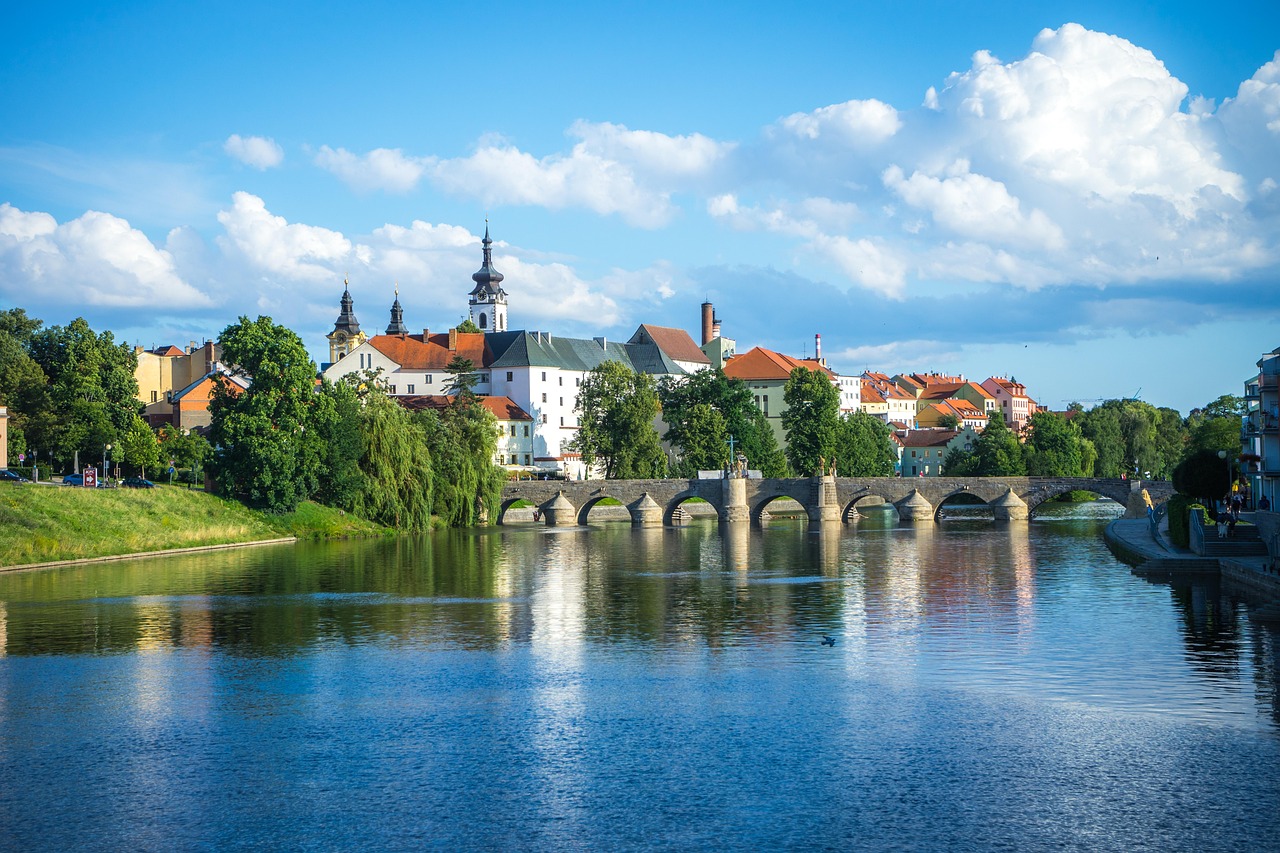
- Fees for EU and Non-EU Citizens: Free (for Czech-Taught Degrees)
- Fees for EU and Non-EU Citizens: Free and for some countries it is up to €18,500/year (for English/Foreign Language-taught Degrees)
- Average Cost of Living: €300 – €750/month
- Best Universities: The Academy of Fine Arts, The Academy of Performing Arts in Prague, Czech University of Life Sciences Prague
- Visa Requirements: Student visa for non-EU; requires university acceptance and proof of finances.
- Scholarship Opportunities: Czech Government Scholarships – for students from developing countries and for selected fields of study.
This enchanting country for free education is also famous for its castles, stunning architecture, and rejuvenating spa. If you pursue a degree that the Ministry of Education accredits, you can also work during your studies. Being one of the free education countries, you can work for 30 days a year. In case you are looking for a job after graduation, you can apply for a post-study residence permit, which is usually for 9 months.
List of Cheap Countries to study
| Country | Region | Tuition Fee | Cost of Living/ month including rent | Post Grad Work Visa | Can work during studies? | If yes, do they need a work permit? |
|---|---|---|---|---|---|---|
| Albania | Europe | €220 – €4,000/year | €466–€567 | N/A | Yes, 20 hours per week | N/A |
| Andorra | Europe | Starting from €750/year | €1,011–€1,270 | N/A | Yes, part-time | All foreign nationals should obtain a work permit to work in Andorra |
| Austria | Europe | EU/EEA/Switzerland and developing countries: Free | €1,048–€1,304 | Yes, 1 year | Yes, up to 20 hours per week | No, they don’t need to apply for a work permit |
| Non-EU: Starting from €762/semester | ||||||
| Belarus | Europe | €1,000 – €6,000/ year | €507–€595 | Yes, 1 year | Less than 30 hours per week | a work permit is not required (you can work on a par with Belarusian students) |
| Belgium | Europe | Wallonia-Brussels Federation or EU: €835/year | €963–€1,297 | Yes, 1 year | Yes, up to 20 hours per week | International students usually need to have a work permit |
| Non-EU: Starting from €2,505/year | ||||||
| Bosnia & Herzegovina | Europe | Starting from €936/year | €452–€523 | N/A | Yes, part-time | They need a work permit in advance |
| Bulgaria | Europe | EU: Starting from €300/ year | €542–€655 | Yes, 9 months | Yes, 20 hours per week during their studies and holidays too | They have to apply for a work permit after graduation |
| Non-EU: Starting from €1,750/year | ||||||
| Croatia | Europe | Starting from €1,000/year | €663–€824 | N/A | Yes, part-time only | Yes, they need a work permit |
| Cyprus | Europe | Cyprus & EU citizens: Free | €1,029–€1,259 | Yes, 60 days | Yes, up to 20 hours per week | They need a student permit from the Immigration Authorities |
| Non-EU/EEA: Starting from €6,834/year | ||||||
| Czech Republic | Europe | Czech taught-degres (both EU and Non-EU): Free | €823–€1,071 | Yes, up to 9 months | Up to 30 days within a calendar year | A student must be enrolled in a degree programme accredited by the Ministry of Education to be eligible to work |
| English/ another foreign language: The tuition fees’ median is €6,250 | ||||||
| Denmark | Europe | EU/EAA and Switzerland: Free | €1,215–€1,484 | Yes, 6 months | Yes, 20 hours per week and full-time during summer break | They need a work permit or an establishment card when applying for work after graduation |
| Others: Starting from €6,000 | ||||||
| Estonia | Europe | Starting from €1,660/year | €823–€1,011 | Yes, Non-EU students up to 9 months | Yes, there is no limitation on the number of working hours for students | They need the work permit after graduation if they want to stay in the country |
| Finland | Europe | Finnish or Swedish-taught degrees: Free | €978–€1,296 | Yes, two years | Yes, up to 30 hours per week | N/A |
| Non-EU/EEA: Starting from €4,000 for English-taught degrees | ||||||
| France | Europe | EU/EAA, Andorra and Switzerland: Starting from €170 EUR/year | €1,039–€1,249 | Yes, up to 1 year | Yes, up to 964 hours per year | If the number of working hours exceeds 964 per year, the employer should apply for a temporary work permit on the Ministry of the Interior website on behalf of the student |
| Non-EU: Bachelor: €2,770 | ||||||
| Master: €3,770 | ||||||
| Germany | Europe | EU/Non-EU: Free | €1,040–€1,277 | Yes, 18 months | Yes, full-time job for 120 days or part-time for 240 half days | They can work without a work permit |
| Greece | Europe | EU/EEA (except for some master programs): Free | €761–€895 | EU/EEA can stay and work in Greece without a work permit. A certificate of Registration or Residence Certificate has to be valid | Yes, 20 hrs /week during the semester and 40 hrs/ week during vacations | N/A |
| Non-EU: Starting from €1,500/year | ||||||
| Hungary | Europe | EU: Starting from €1,200/year | €612–€742 | Yes, 9 months | Yes, up to 24 hours a week during the semester | Non-EU international students will need to obtain a permit. |
| Non-EU can expect higher tuition | ||||||
| Iceland | Europe | EU/EEA and Non-EU/EEA: Free | €1,369–€1,976 | Yes, up to six (6) months | Non-EEA/EFTA students can work up to 15 hours per week during the academic year | Yes they should apply for a work permit |
| Italy | Europe | EU: Starting from €900/year | €894–€1,103 | Stay back options are only permissible if you have completed a PhD or level 2 Masters Program in Italy, for 12 months | Yes, 20 hours per week | N/A |
| Non-EU can expect higher tuition | ||||||
| Latvia | Europe | EU: Starting from €1,200 | €693–€808 | Yes, 1 year | Yes, up to 20 hours per week during the semester and 40 hours a week during the semester break | No, they don’t thave to apply for a work permit while on student visa |
| Non-EU: Starting from €2,500 | ||||||
| Liechtenstein | Europe | EU/EEA, Swiss nationals: €960/semester | €1,509–€1,900 | Yes, 1 year | Students who live in Liechtenstein with a short-term residence permit are allowed to work up to 35% during the semester and 100% during semester breaks. | Yes, they need a working permit from Ausländer- und Passamt |
| Non-EU/EEA: Starting from €1,260/semester | ||||||
| Lithuania | Europe | EU & Non-EU: | €735–€908 | Yes, 1 year | Yes, up to 40 hours per week | They need to have a temporary residence permit to be able to work |
| Starting from €1,300 | ||||||
| Luxembourg | Europe | EU, EEA, and Swiss nationals: €1200/year | €1,414–€2,036 | Yes, 9 months | Yes, 346 hours during the academic year | N/A |
| French, German or Luxembourgish taught degrees: Free | ||||||
| English-taught degrees: Starting from €1200 | ||||||
| Malta | Europe | Maltese citizens, EU, the EEA, and Switzerland: Free | €948–€1,270 | Yes, 6 months | Yes, a maximum of 20 hours per week | All foreign nationals need a work permit in Malta |
| Non-EU: Starting from €1,080 | ||||||
| Moldova | Europe | International students except citizens of Romania and Ukraine: Starting from €1,000/year | €499–€587 | N/A | Yes, 20 hours per week | N/A |
| Montenegro | Europe | €1,500 – €3,000/year | €616–€725 | N/A | Yes, part-time | N/A |
| Netherlands | Europe | EU/EAA, Switzerland or Surinam: €2,314 | €1,165–€1,646 | Yes, 1 year | Yes, up to 16 hours per week and full-time in summer months | They need a work permit |
| Non-EU/EAA: Starting from €6,000 | ||||||
| North Macedonia | Europe | Starting from €2,341 | €414–€585 | N/A | Yes, up to 20 hours per week | N/A |
| Norway | Europe | EU/EEA and Switzerland: Free | €1,211–€1,578 | Yes, 1 year | Yes, up to 20 hours per week | N/A |
| Non-EU/EEA: | ||||||
| $13,000 | ||||||
| Poland | Europe | Polish, EU/EEA & Switzerland (Polish taught-degree: Free | €660–€887 | Yes, 9 months | 20 hours per week during studies and 40 hours per week during holidays | No, they don’t need a work permit |
| Non-EU: Starting from €2,000/year | ||||||
| Portugal | Europe | EU/EEA: Starting from €550/year | €752–€1,026 | Yes, 1 year | Yes, 20 hours per week during their studies and full-time during vacations | N/A |
| Romania | Europe | EU: €1,000/year | €528–€641 | Yes, 9 months | 20 hours per week | They don’t need a work permit. Those with a work permit can work more hours in the country |
| Non-EU: €2,000/year | ||||||
| San Marino | Europe | €2,000 – €3,000/year | €747–€1,039 | N/A | N/A | N/A |
| Serbia | Europe | Starting from €1000/year | €527–€641 | N/A | Yes, up to 20 hours per week | N/A |
| Slovakia | Europe | EU: Free | €695–€889 | Yes, 9 months | Yes, up to 20 hours per week | N/A |
| Non-EU: Starting from €2000/year | ||||||
| Slovenia | Europe | EU, citizens of BiH, Montenegro, Kosovo, the Republics of Macedonia and Serbia: Free | €807–€985 | Yes, 1 year | Yes, temporary and part-time work under “Student Work” | They need a contract from Student Services employment agency |
| Non-EU: Starting from €2,000/year | ||||||
| Spain | Europe | EU: Starting from €1,200/year | €805–€1,098 | Yes, 12 months | 20 hours per week and full-time during the semester breaks | They need work authorization |
| Non-EU can expect higher tuition | ||||||
| Sweden | Europe | EU/EEA, other Nordic countries, and Switzerland: Free | €924–€1,217 | Yes, 1 year | They are allowed to work as many hours as they want, for as long as they spend 40 hours/week on academic responsibilities | N/A |
| Non-EU/EEA: Starting from €7,500/year | ||||||
| Switzerland | Europe | Both EU and Non-EU: Starting from €400/year | €1,872–€2,416 | Yes, 6 months | Yes, 15 hours per week during term-time, full-time during summer breaks | They should apply for a work permit after graduation |
Why do countries offer free education to international students?
- Cultural Diplomacy and Soft Power
Offering free education allows countries to foster positive relationships with other nations. Countries use education as a form of “soft power” to increase their global influence. Graduates who have studied in a particular country often return to their home countries with a favorable opinion of that country, contributing to long-term goodwill and potentially influencing global decisions.
- Economic Benefits
Free education programs attract highly talented international students who may go on to contribute to the country’s workforce, research, and innovation. International students, while they may not pay tuition fees, still contribute economically through spending on housing, food, transportation, and other living expenses.
- Diversity and Global Competitiveness
International students add diversity to universities, which enriches classroom discussions and promotes a global perspective. This diversity can improve the institution’s academic reputation and competitiveness on the world stage. Many countries aim to have top-ranking universities that attract the best international students.
- Development of Education Systems
Some countries see free or subsidized education for international students as an investment in improving the overall quality of their education system. By offering free education to international students, countries are investing in future relationships. These students may become future professionals, business partners, or leaders who influence global affairs in ways that benefit the host country.
- Geopolitical Strategy
Free education can be part of a broader geopolitical strategy, especially if a country wants to strengthen its relationship with certain regions or nations. By attracting international students from specific countries or regions, the host country can create long-lasting diplomatic and economic ties.
- Support for International Development
Some countries offer free education to international students as a form of aid, particularly to students from developing countries. This is often seen as a way to invest in human capital development, fostering global economic growth and stability by helping individuals in low-income regions access quality education.
- Long-Term Return on Investment
While international students may not pay tuition fees, they may contribute to the local economy in other ways, such as working part-time jobs during their studies or later as skilled workers. Additionally, many countries offer pathways for international students to stay after graduation and contribute to the country’s workforce, particularly in industries facing skills shortages.
Admission Requirements for Countries with Free Education
- Secondary School Diploma
You must have completed your secondary education (high school) to qualify for undergraduate admission.
- Proof of Language Proficiency
You need to show that you can study in the language of instruction (whether it’s the local language or English).
- Entrance Examinations
Some universities or specific programs may require an entrance exam.
- Documents Required for Admission
You will need to provide specific documents to complete your application.
- Visa and Residency Requirements
If you’re an international student, you will likely need a student visa and residence permit to study.
Conclusion
In conclusion, countries with free education serve as an excellent example of how to ensure that everyone, regardless of socioeconomic background, may access education. Countries like Germany, Sweden, Norway, and Finland show how investment in education can result in a better educated, equitable, and affluent society, even when the precise institutions and funding models differ. In addition to giving people the tools they need to better their lives, free education helps create a highly skilled labor force, which boosts the economy overall. It’s crucial to remember that free education is not necessarily free; it is paid for by taxes or other public sources of income and frequently has eligibility limitations. These nations provide a potent example as the global dialogue on the accessibility and affordability of education keeps expanding.
After you have decided to choose one of countries with free education for further education, accommodation is the first and foremost thing. uhomes.com is a platform providing affordable, reliable and comfortable student accommodation in countries with free education.
FAQ
Finland is renowned for having one of the best educational systems in the world, with a focus on providing equal opportunities for all students. Education in Finland is free at all levels, from pre-primary to university, and is based on the principle of equal access for all.
Can you Study Abroad for Free? Is there any way to study abroad for free? Yes, there are many countries that offer high-quality education at low fees or zero cost. Germany, Sweden, Denmark, Iceland, and Norway are some of those country where you can pursue higher education at affordable prices.
The first country with free education for Indian students is Norway which also funds higher education for them. There is no tuition fee for public universities or colleges, only a small registration fee needs to be paid.
Ans. Countries like Germany, the USA, the UK, Canada, and Australia offer fully funded scholarships for Indian students. Popular scholarships include DAAD (Germany), Chevening (UK), Fulbright (USA), and Vanier (Canada). Many European universities also provide tuition-free education for international students.








